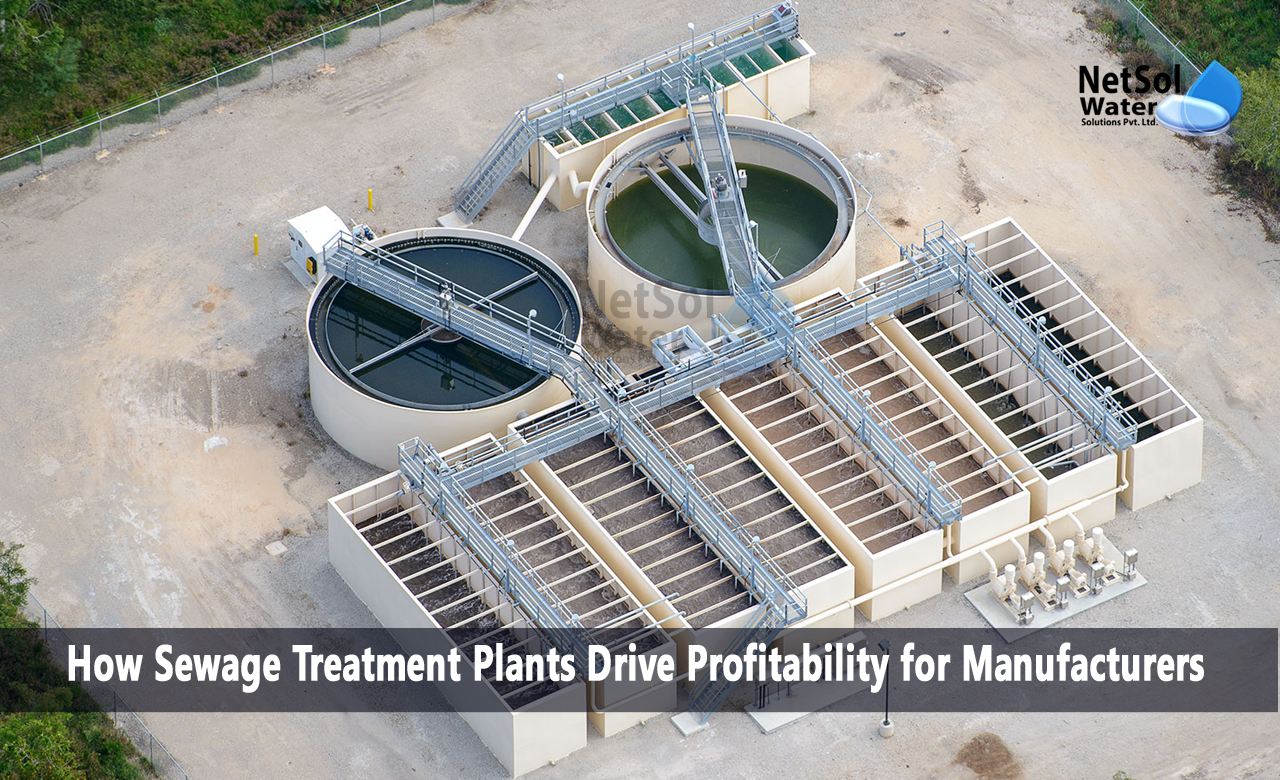How Sewage Treatment Plants Drive Profitability for Manufacturers?
In today's era of sustainability, industries are increasingly seeking ways to transform wasteinto profitable opportunities. One often overlooked avenue for driving profitability lies in the partnership between manufacturers and sewage treatment plants (STPs). By leveraging the capabilities of STPs, manufacturers can turn waste into valuable resources, reduce operational costs, and enhance their bottom line.
In this blog, we will explore how sewage treatment plants can play a pivotal role in driving profitability for manufacturers.
Resource Recovery and Recycling
Sewage treatment plants possess the potential to recover valuable resources from wastewater, enabling manufacturers to reduce their reliance on virgin materials. Advanced treatment processes can extract organic matter, metals, and other materials, which can be recycled and utilized in various industries. For example, organic matter recovered from wastewater can be converted into biogas or compost, which can serve as renewable energy sources or soil amendments for agricultural applications. By incorporating these recovered resources into their production processes, manufacturers can reduce material costs, increase resource efficiency, and drive profitability.
Energy Generation and Cost Reduction
Wastewater is a valuable source of energy, primarily through the generation of biogas via anaerobic digestion. Biogas, mainly composed of methane, can be captured and used to produce electricity and heat. By partnering with STPs to harness biogas, manufacturers can offset their energy costs, reduce reliance on conventional energy sources, and potentially generate additional revenue by selling excess energy back to the grid. This not only improves the financial bottom line but also contributes to environmental sustainability.
Water Conservation and Efficiency
Water scarcity and rising costs make water conservation a critical concern for manufacturers. Collaborating with sewage treatment plants allows manufacturers to access a local, reliable source of reclaimed water. By treating and reusing wastewater, manufacturers can significantly reduce their freshwater consumption, resulting in lower water bills and operational costs. Reclaimed water can be utilized for non-potable applications such as cooling, cleaning, or irrigation, providing a cost-effective alternative to using freshwater resources. This water conservation not only benefits the manufacturer's profitability but also demonstrates a commitment to responsible water stewardship.
Regulatory Compliance and Avoiding Penalties
Environmental regulations and wastewater discharge standards are becoming increasingly stringent. Non-compliance can lead to significant penalties and reputational damage for manufacturers. Partnering with sewage treatment plants ensures that manufacturers can meet regulatory requirements and maintain compliance with wastewater treatment standards. By utilizing the expertise and infrastructure of STPs, manufacturers can avoid potential fines and legal consequences, preserving their financial stability and reputation.
Brand Enhancement and Sustainable Image
Consumers are increasingly drawn to environmentally conscious brands that prioritize sustainability. Collaborating with sewage treatment plants allows manufacturers to demonstrate their commitment to environmental responsibility and differentiate themselves in the market. By adopting sustainable practices and leveraging STPs for resource recovery and waste management, manufacturers can enhance their brand image, attract environmentally conscious consumers, and capture a larger market share. This, in turn, can translate into increased sales and profitability.
Challenges and the Way Forward
While the potential benefits of partnering with sewage treatment plants are significant, there are challenges that manufacturers need to address. These challenges include infrastructure compatibility, technical feasibility, regulatory compliance, and establishing effective partnerships. Manufacturers must invest in research, innovation, and collaboration with STPs, government bodies, and industry experts to overcome these hurdles and maximize the profitability potential.
Conclusion
In the pursuit of profitability and sustainability, manufacturers must embrace innovative solutions that transform waste into valuable opportunities. By partnering with sewage treatment plants, manufacturers can drive profitability through resource recovery, cost reduction, water conservation, regulatory compliance, and brand enhancement. As the circular economy gains traction, leveraging the capabilities of STPs will become increasingly vital in ensuring long-term profitability and environmental responsibility for manufacturers.
Netsol Water is Greater Noida-based leading water & wastewater treatment plant manufacturer. We are industry's most demanding company based on client review and work quality. We are known as best commercial RO plant manufacturers, industrial RO plant manufacturer, sewage treatment plant manufacturer, Water Softener Plant Manufacturers and effluent treatment plant manufacturers. Apart from this 24x7 customer support is our USP. Call on +91-9650608473, or write us at enquiry@netsolwater.com for any support, inquiry or product-purchase related query.



